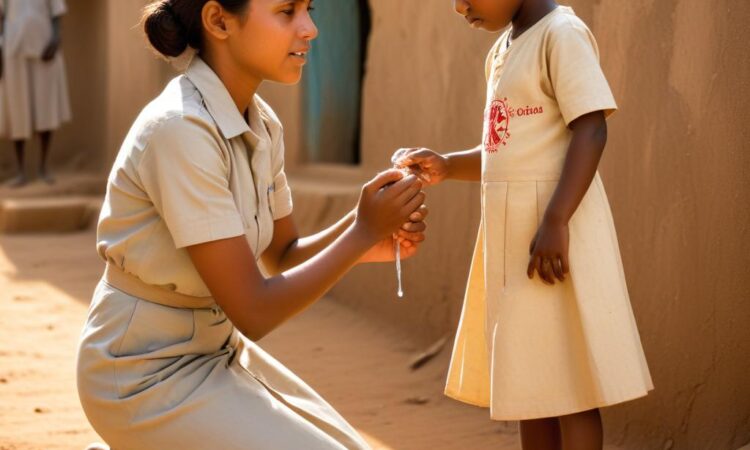Polio Resurgence: A Call for Continued Vaccination Efforts
The world has been grappling with a concerning resurgence of polio, a highly contagious and potentially crippling disease. Cases have been reported in several countries, underscoring the critical importance of continued vaccination efforts and the need to maintain global vigilance against this preventable illness.
The Threat of Polio
Polio, caused by the poliovirus, is a highly contagious disease that can lead to irreversible paralysis. The virus spreads through contaminated water and food, and can also be transmitted through direct contact with an infected person. While there is no cure for polio, effective vaccines offer a powerful defense against the disease.
In the early 20th century, polio outbreaks were a common occurrence worldwide, resulting in widespread paralysis and death, particularly among children. The development of polio vaccines in the 1950s and 1960s marked a turning point in the fight against this devastating disease. Through extensive vaccination campaigns, polio cases drastically declined, and the disease was even eradicated from many parts of the world.
The Resurgence of Polio
However, in recent years, there has been a resurgence of polio in some countries. This resurgence can be attributed to several factors, including:
- Decreased vaccination rates: In some areas, vaccine coverage has declined, leaving populations vulnerable to polio infection.
- Misinformation and vaccine hesitancy: Misinformation about the safety and effectiveness of vaccines has contributed to vaccine hesitancy, leading to reduced immunization rates.
- Weak surveillance systems: In some countries, surveillance systems for polio have been weakened, making it difficult to track outbreaks and implement timely interventions.
- Conflicts and displacement: Conflicts and humanitarian crises can disrupt vaccination programs and lead to increased vulnerability to polio.
- Environmental contamination: The poliovirus can survive in the environment, making it possible for outbreaks to occur even in areas with high vaccination rates.
The Importance of Continued Vaccination
The resurgence of polio serves as a stark reminder of the importance of sustained vaccination efforts. Polio is a preventable disease, and vaccines offer the best protection against infection. By ensuring that all individuals receive the recommended doses of polio vaccine, we can prevent the spread of this dangerous virus.
The Role of the World Health Organization
The World Health Organization (WHO) is actively working to eradicate polio globally. Through its Global Polio Eradication Initiative (GPEI), the WHO provides technical support to countries, coordinates vaccination campaigns, and monitors polio outbreaks. The WHO is committed to achieving a polio-free world, and its efforts are critical to preventing the spread of this disease and protecting vulnerable populations.
What Can We Do?
Every individual has a role to play in the fight against polio. Here are some ways you can contribute:
- Get vaccinated: Ensure that you and your children are up-to-date on their polio vaccinations.
- Advocate for vaccination: Share accurate information about polio vaccines and the importance of immunization with your family, friends, and community.
- Support organizations working to eradicate polio: Donate to organizations like the WHO and Rotary International, which are actively working to eliminate polio globally.
- Stay informed: Keep yourself updated on the latest news about polio outbreaks and vaccination efforts.
Conclusion
The resurgence of polio is a serious public health concern that demands a collective response. By understanding the risks, staying informed, and supporting vaccination efforts, we can work together to prevent the spread of polio and protect future generations from this debilitating disease. Only through sustained vigilance and continued efforts can we achieve a polio-free world.

